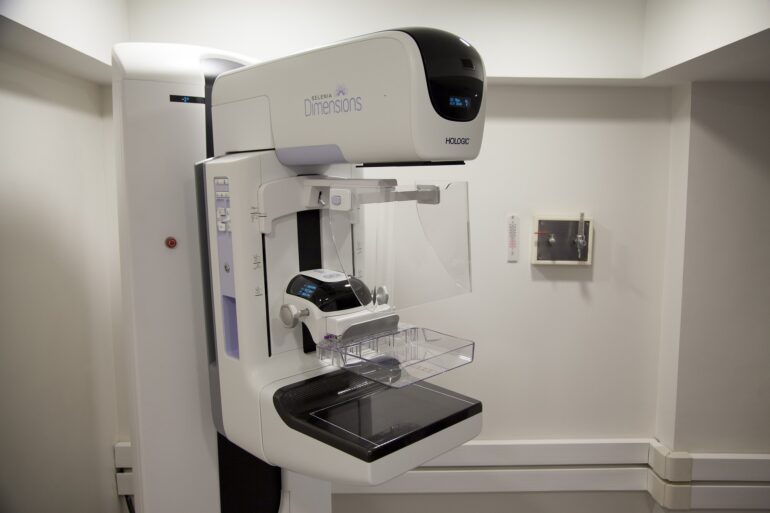TL;DR:
- A study by Mass General Brigham reveals the exceptional ability of ChatGPT 4, an AI language model, to accurately recommend imaging tests for breast cancer screening and breast pain evaluation.
- Large language models like ChatGPT can assist primary care doctors and referring providers in making evidence-backed decisions and optimizing workflow.
- ChatGPT 4 outperforms its predecessor, ChatGPT 3.5, especially when provided with multiple imaging options.
- Integrating AI into medical decision-making could enhance point-of-care interactions and improve patient outcomes.
- Fine-tuning ChatGPT with the specific patient and therapeutic data can tailor the model to support the diagnosis of rare and complex diseases.
Main AI News:
A groundbreaking study conducted by Mass General Brigham has revealed that artificial intelligence (AI) language models, such as ChatGPT, possess an exceptional ability to identify the most suitable imaging services for two crucial clinical scenarios: breast cancer screening and breast pain evaluation. The findings of this research suggest that large language models have the potential to revolutionize decision-making for primary care physicians and referring providers when it comes to assessing patients and ordering imaging tests for breast pain and breast cancer screenings. These significant results have been published in the esteemed Journal of the American College of Radiology.
Dr. Marc D. Succi, the corresponding author of the study and the Associate Chair of Innovation and Commercialization at Mass General Brigham Radiology, as well as the Executive Director of the MESH Incubator, expressed his admiration for ChatGPT’s capabilities. He emphasized the model’s role as a bridge between healthcare professionals and expert radiologists. Acting as a trained consultant, ChatGPT provides valuable recommendations for the most appropriate imaging tests at the point of care, ensuring efficient decision-making without delay. By reducing administrative time for both referring and consulting physicians, this innovative approach optimizes workflow, minimizes burnout, and alleviates patient confusion and wait times.
ChatGPT is a remarkable large language model (LLM) designed to answer questions in a human-like manner. Since its introduction in November 2022, researchers worldwide have been eagerly exploring the potential applications of AI tools in the field of medicine. This study, published as a preprint on February 7, 2023, stands as the first of its kind to examine ChatGPT’s capabilities in clinical decision-making. Notably, it is also the first study to evaluate the performance of GPT 4, distinguishing it from previous iterations.
When a primary care physician seeks specialized testing, such as for a patient experiencing breast pain, they may face uncertainty regarding the most appropriate imaging test. The available options could include an MRI, an ultrasound, a mammogram, or other alternatives. Radiologists typically adhere to the American College of Radiology’s Appropriateness Criteria to guide their decision-making. While these evidence-based guidelines are well-known to specialists, non-specialists, such as primary care physicians, may be less familiar with them, potentially leading to patient confusion and inappropriate test selection. This study aimed to address this challenge by evaluating the performance of OpenAI’s ChatGPT 3.5 and 4 in recommending imaging tests based on appropriateness criteria for 21 hypothetical patient scenarios involving breast cancer screening or breast pain evaluation.
The researchers employed both an open-ended approach and a list of options to solicit responses from ChatGPT. They compared the performance of ChatGPT 3.5 with ChatGPT 4, the newer and more advanced version. Notably, ChatGPT 4 outperformed its predecessor, particularly when presented with multiple choice imaging options. For instance, when posed questions about breast cancer screenings and provided with various imaging choices, ChatGPT 3.5 answered correctly in an average of 88.9% of cases, while ChatGPT 4 achieved an impressive accuracy of approximately 98.4%.
Dr. Succi clarified that the study did not seek to compare ChatGPT with existing radiologists, as the gold standard for comparison is the guidelines from the American College of Radiology. Instead, this research serves as an additive study, demonstrating that AI can be an excellent adjunct to optimize a doctor’s time by assisting with non-interpretive tasks, rather than replacing a physician’s expertise in choosing an imaging test.
The integration of AI into medical decision-making could occur directly at the point of care. As primary care doctors input patient data into electronic health records, AI programs could alert them to the most appropriate imaging options, providing patients with clear expectations regarding their upcoming tests and recommending the optimal test for the doctor to order.
Furthermore, the researchers suggested that a more advanced medical AI system could be developed by utilizing datasets from hospitals and research institutions, tailoring them to specific health-focused applications. By fine-tuning ChatGPT with patient and therapeutic data from specialized centers of excellence, such as those at Mass General Brigham, the model could provide invaluable support in diagnosing rare and complex diseases. This expertise could then be shared with centers around the world, particularly those that encounter such conditions less frequently.
However, before any AI is involved in medical decision-making, it must undergo rigorous testing for bias, privacy concerns and receive approval for use in medical settings. The emergence of new regulations surrounding medical AI will also significantly impact the integration of these technologies into patient care interactions.
Conclusion:
The findings of the study highlight the transformative potential of ChatGPT 4 in the field of medical decision-making for breast cancer imaging. This breakthrough technology offers primary care doctors and referring providers a valuable tool to assist in choosing the appropriate imaging tests, optimizing workflow, reducing administrative time, and improving patient experiences. The superior performance of ChatGPT 4 compared to its predecessor signifies the advancements in AI language models and their applications in healthcare.
As the market continues to embrace AI-powered solutions, integrating these technologies into medical settings could revolutionize the way healthcare professionals deliver care and enhance patient outcomes. This presents a significant opportunity for AI technology providers to collaborate with healthcare organizations and develop tailored AI solutions that meet the specific needs of different patient populations, further driving innovation and growth in the market.

